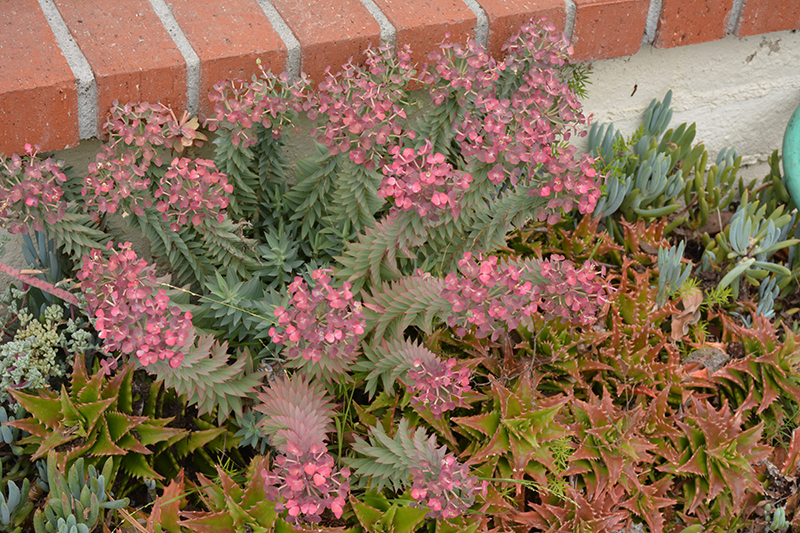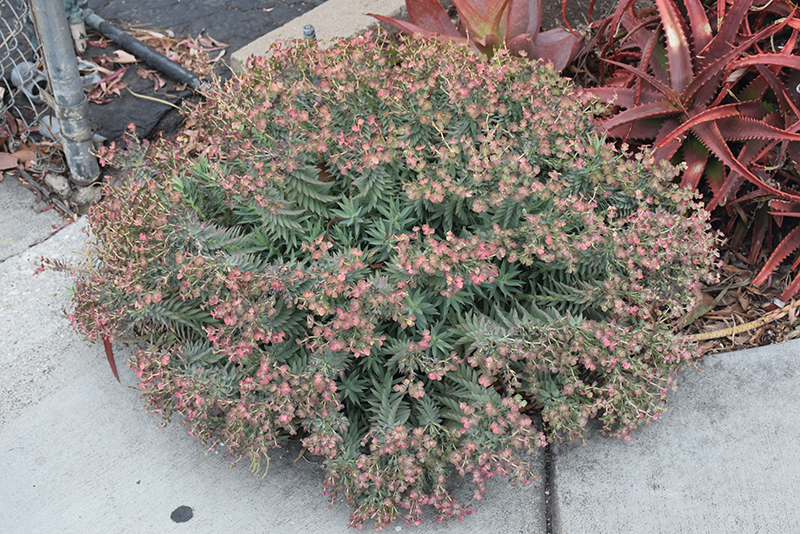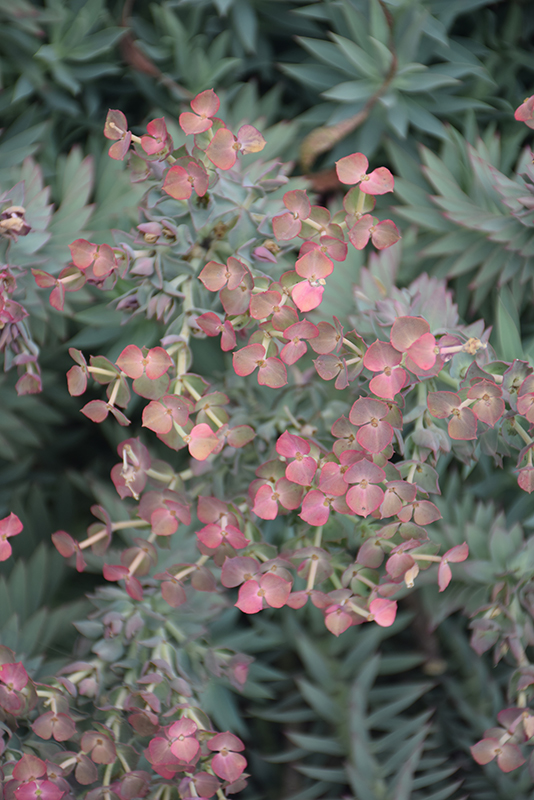Height: 24 inches
Spread: 3 feet
Sunlight:
![]()
![]()
Hardiness Zone: 6b
Other Names: Gopher Spurge, Upright Myrtle Spurge
Description:
A visually pleasing variety with upright stems that are covered in steel blue-green foliage that is symetrically arranged; this variety really lights up the garden or border edgings; also great for rock gardens
Ornamental Features
Silver Spurge has masses of beautiful clusters of green flowers with chartreuse bracts held atop the stems from late winter to early spring, which are most effective when planted in groupings. Its attractive succulent pointy leaves are steel blue in color. The foliage often turns red in fall.
Landscape Attributes
Silver Spurge is an herbaceous evergreen perennial with an upright spreading habit of growth. Its relatively fine texture sets it apart from other garden plants with less refined foliage.
This is a relatively low maintenance plant, and should only be pruned after flowering to avoid removing any of the current season's flowers. Deer don't particularly care for this plant and will usually leave it alone in favor of tastier treats. Gardeners should be aware of the following characteristic(s) that may warrant special consideration;
- Self-Seeding
Silver Spurge is recommended for the following landscape applications;
- Mass Planting
- Rock/Alpine Gardens
- Border Edging
- General Garden Use
Planting & Growing
Silver Spurge will grow to be about 24 inches tall at maturity, with a spread of 3 feet. It grows at a medium rate, and under ideal conditions can be expected to live for approximately 10 years. As an evegreen perennial, this plant will typically keep its form and foliage year-round.
This plant does best in full sun to partial shade. It prefers dry to average moisture levels with very well-drained soil, and will often die in standing water. It is considered to be drought-tolerant, and thus makes an ideal choice for a low-water garden or xeriscape application. It is not particular as to soil pH, but grows best in sandy soils. It is highly tolerant of urban pollution and will even thrive in inner city environments. This species is not originally from North America, and parts of it are known to be toxic to humans and animals, so care should be exercised in planting it around children and pets. It can be propagated by cuttings.



